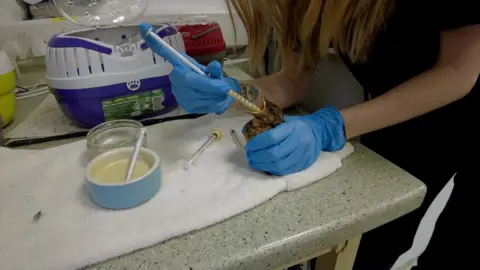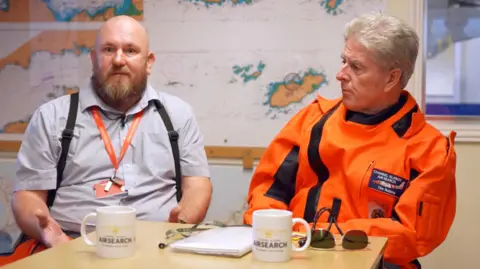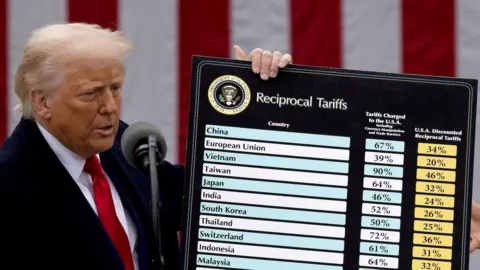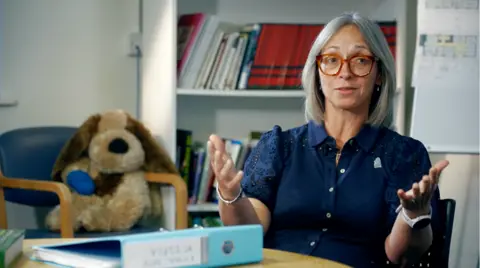Global issues cause tough times for Channel Islands charities

BBC News, Channel Islands
BBC News, Jersey
 BBC
BBCCharities in the Channel Islands say they are being faced with financial uncertainty and extra fundraising challenges because of international events outside of their control.
The cost of living crisis, global instability, and Donald Trump’s second-term policies were among issues facing them, bosses said.
Robert Surcouf, deputy chair of the Association of Jersey Charities (AJC), said local charities needed to be quick on their feet to withstand the challenges. One charity based in Guernsey said it was “in the hands” of “challenging” outside events.
Mr Surcouf said: “Something that comes out of the White House can have huge impacts here.” The White House has been contacted for comment.
“That’s on top of Covid [the international pandemic], a cost of living crisis and uncertainty for major benefactors,” he said.
Mr Surcouf said this year had been “a challenging time” but that things were unlikely to change “any time soon”.

One of the charities struggling is Channel Island Air Search (CAIS), based in Guernsey, which acts as “eyes in the sky” for lifeboats across the islands.
Its planes cost more than £2,500 an hour to keep in the air – or about £300,000 a year – without any extra spending or additional costs.
Trustee Gareth Le Page said the CAIS also needed to find an extra £70,000 this year to update its aircraft’s software systems.
As well as rising costs, Mr Le Page said corporate donors were turning their focus to environmentally-sustainable projects, or health and wellbeing charities.
Mr Le Page said: “We’re in the hands of outside events – and outside events are challenging.”
Trump effect
However, Mr Le Page said the biggest impact came from some international donors being influenced by the US president’s views.
“If Trump’s saying: ‘Don’t support this,’ they’re not supporting,” which was “concerning for charities”, he said.
Charities needed to be agile, Mr Le Page added: “Whether it’s Trump or it’s the election in the UK, a weather event or climate change – they’ve got to be nimble.”
President Trump has introduced swathes of radical new policies since January, including new tariffs on international trade, as well as tougher and less predictable stances on conflicts in Ukraine and the Middle East.
Mr Surcouf said the biggest concern for local charities was the potential “butterfly effect” of US policies being mirrored elsewhere.
He said: “People used to agree charitable giving was good, but that’s changing in America. Will others follow?”
 Reuters
ReutersA recent budget bill introduced by President Trump reduced the tax incentives for wealthy US donors and corporations making charitable donations.
The National Council for Nonprofits – a US membership organisation for charities – estimated the bill could reduce donations by about $7bn (£5.2bn) over 10 years.
Carol Mack, from the UK’s Association of Charitable Foundations, said President Trump’s decision to stop overseas aid was having a huge impact on charities working overseas.
She said the US had given out $55bn [£44bn] in 2023, so stopping that overnight had created “an enormous funding gap”.
Charity finance expert Naziar Hashemi said President Trump’s policies affected some charities “more than others”.
Though many were “nervous”, others, such as research organisations, could benefit from a brain drain from the United States – with some researchers not wanting or able to work in the US.

Pam Aubert, chief executive of wildlife charity JSPCA, said donors were “getting smarter” while funding was “getting tighter”.
Ms Aubert said: “We don’t have a crystal ball.
“We don’t know what the future is going to hold. Nobody saw Covid coming; I didn’t see Trump getting back in.”
With operating costs of between £1.2m and £1.4m a year, she said it was increasingly “tough for any charity relying on generosity for its survival”.
She said charities needed to “get smarter” in how they showed donors the value for money they offered.


